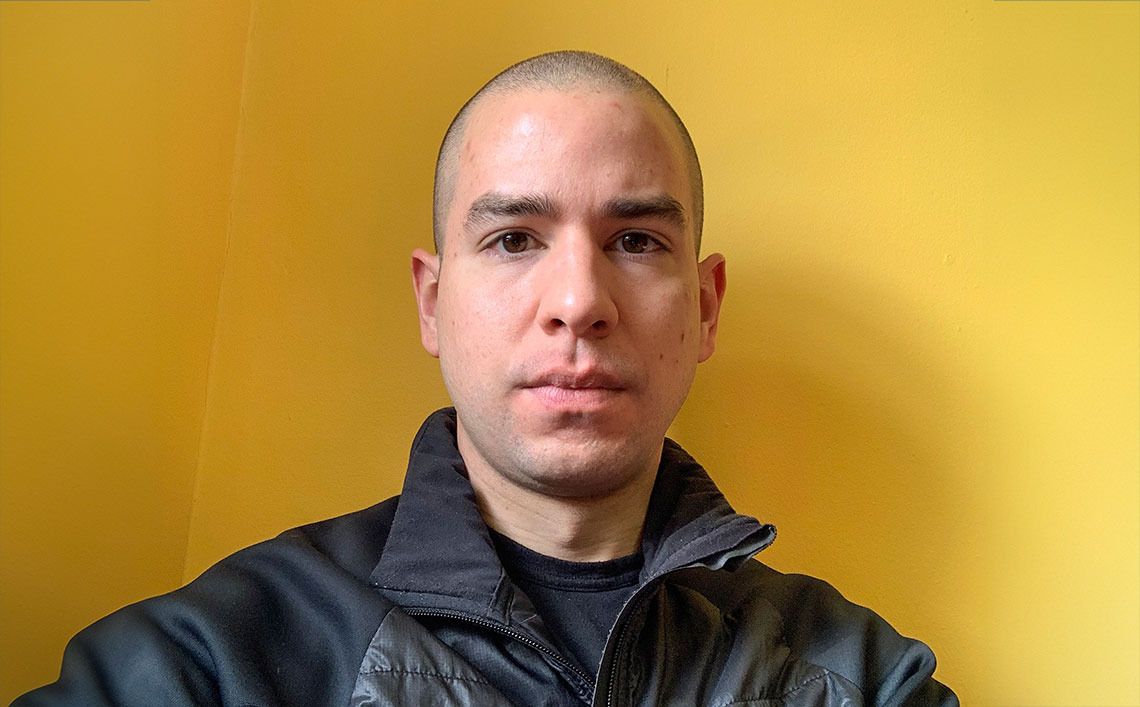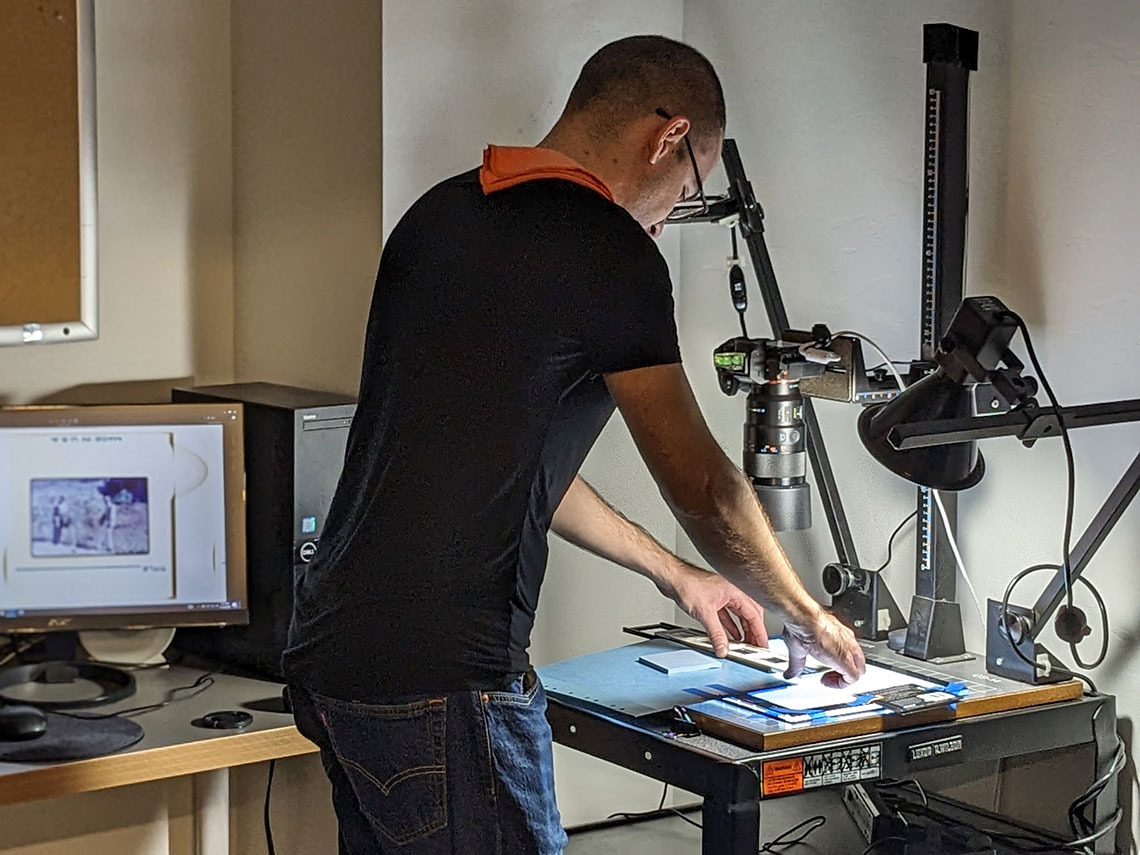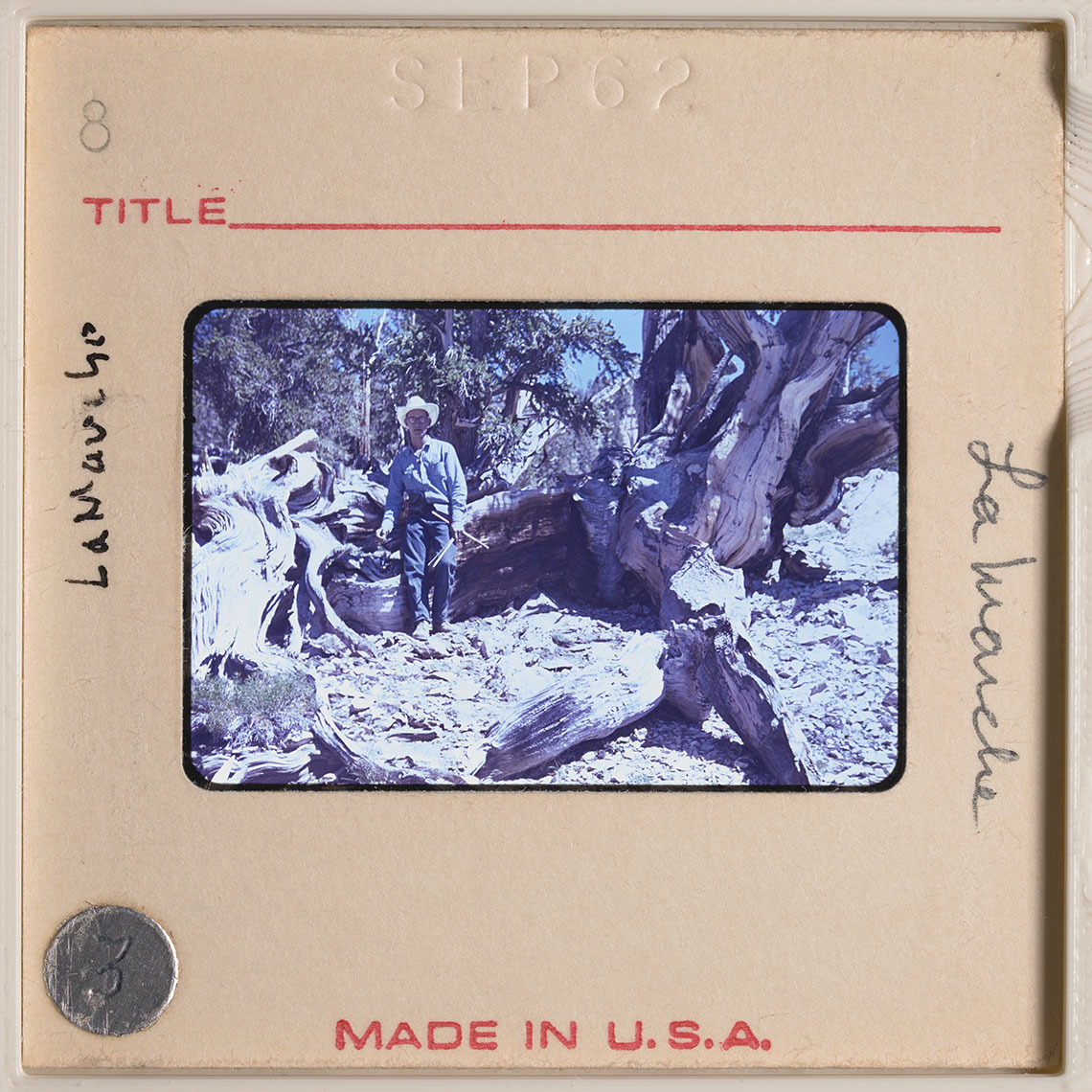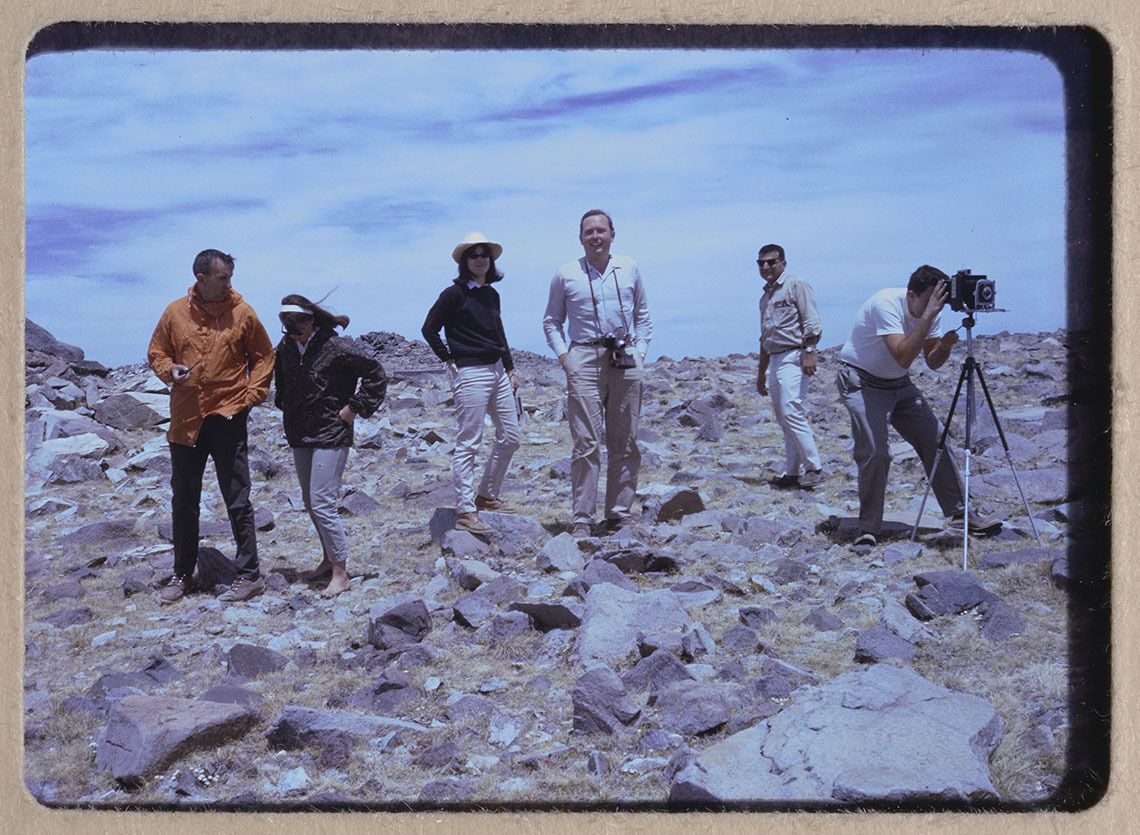In Service to the Public: 9 Questions with Dylan Maldonado, MLIS ’25 (Online)
iSCHOOL STUDENT PROFILE

Each person in the program, whether they are a student or a professor, is driven by the main goal of helping others. No matter what our backgrounds are, and no matter what our particular academic interests in the library and information science field are, we all are on the same wavelength of wanting to be in service to the public.
Dylan Maldonado, who is originally from Tucson and earned bachelor’s and master’s degrees in philosophy from the University of Arizona before moving to pursue an MA in Philosophy from Boston University, is an online student in the iSchool’s Master of Arts in Library and Information Science program. In this profile, he discusses the transition from philosophy to library and information science, his interest in photography archives and more.
What brought you to the University of Arizona to study library and information science?
I am from Tucson originally and completed my undergraduate and graduate degrees at the University of Arizona. I really enjoy Tucson and was pleased with my past experience at the U of A, so I decided to pursue my Master’s in Library and Information Science here as an Arizona Online student.
What area of focus in library and information science most interests you?
My main focus is archival studies. I am very interested in photography, specifically the history of photography and the digitization of analog photographic materials. I am most excited about working hands-on with analog photographical materials (such as negatives, slides and prints) as an archivist, which would include digitizing, describing, cataloging and safely storing these materials.
What do you like best about the UArizona Master’s in Library and Information Science?
The sense of community and belonging that I have with the information science faculty and students. Prior to my enrollment in the iSchool, I had never really explored the academic aspect of galleries, libraries, archives and museums (GLAM), and I initially felt like a stranger walking into a foreign world. However, a few weeks into my first library and information science course, I discovered something very important: each person in the program, whether they are a student or a professor, is driven by the main goal of helping others. No matter what our backgrounds are, and no matter what our particular academic interests in the library and information science field are, we all are on the same wavelength of wanting to be in service to the public. This shared desire and goal makes me feel at home and in a community.

Dylan Maldonado creating digital surrogates of film slides at the Laboratory of Tree-Ring Research at the University of Arizona. Photo courtesy Dylan Maldonado.
What has been your biggest challenge at the iSchool, and how have you overcome that challenge?
My biggest challenge at the iSchool was having neither any real knowledge of the academic GLAM world nor any hands-on experience in the field. I had only ever heard of “library science” before, but really didn’t know what it was all about. When I took my first few classes in the MLIS program, I was struggling to see how everything I was learning fit together, and how it was actually put into practice. I had the same struggle when I first started volunteering at the Laboratory of Tree-Ring Research; there was a big learning curve for me when it came to digitizing, cataloging and organizing information at a real archive. However, taking LIS 540 Introduction to Archives finally helped me tie a lot of what I learned in the MLIS program together, and the more I worked at the lab, the more confident I became with working in an archive.
Tell us about your decision to make an academic/career change after earning degrees in philosophy.
One of the biggest challenges I have faced has been determining a career path outside of philosophy. I had spent almost half of my life studying philosophy and it had become my world and identity. Once I made the decision to no longer pursue philosophy professionally, I felt lost, and it was unclear whether or not I’d even continue in academia in some way. However, I came across a great article that mentioned good, non-philosophy career paths for philosophy graduates, which listed “archivist” as a potential fit for someone like me. Given my interest in photography and the exciting prospect of one day working at a place like the UArizona Center for Creative Photography (CCP), I decided to pursue an MLIS at the University of Arizona with the aim of one day becoming an archivist. My enrollment in the MLIS program has been one of the best decisions I have ever made. Working in this program has given me a new sense of purpose and identity, and I feel incredibly fortunate to have found a path that I can call my own again.

An image of a 135 film slide that was created using Capture One software. This slide, which depicts a dendrochronologist next to a bristlecone pine tree in 1962, belongs to the Laboratory of Tree-Ring Research Photography Archive.
Tell us about your job experience and career aspirations.
I have been a volunteer and student employee at the Laboratory of Tree-Ring Research archives for over a year now. I started with digitizing and cataloging documents related to dendrochronological work, and most recently I have been rehousing and digitizing analog photographic materials, such as 135 film slides. I am studying and working towards becoming an archivist, and I hope to one day work at a large photography archive, such as the CCP.
Outside of school, what are your hobbies?
My main hobbies are playing video games online with my friends, watching films and reading and writing philosophy. I’ve known many of the friends I play with since we were five years old. The ability to play Warzone with each other online has been a crucial means for us to all stay in touch with one another, since some of us now live outside of Tucson, or even outside of the U.S. Watching films with others is one of my favorite activities. I recently watched all of James Cameron’s films with one of my friends and it was an amazing experience, especially watching The Abyss and True Lies. Philosophy is the language of my soul, and I make it a point to work on my own philosophical writing every morning. My goal is to self-publish one day.

An image of a 110 film slide that was created using Capture One software. This slide, which depicts a group of dendrochronologists in the White Mountains (California) in 1966, belongs to the Laboratory of Tree-Ring Research Photography Archive.
What does the iSchool experience mean for you?
For me, the iSchool experience means the incredible opportunity to learn from other students, as well as the constant discovery of everything that the library and information science field has to offer. During my first semester in the iSchool, I was surprised to see how many students already had a solid background and work experience in the information sciences. Many students had worked in libraries, museums or archives, and just listening to their input on and engagement with course readings was illuminating. These students, through their experience, were able to explain the power and significance of key aspects of information science in a way that was very real and inspirational. Also, it seems that I learn a completely new and intriguing aspect of the world of information science with every class that I take, such as the importance of acknowledging cultural diversity when it comes to creating classification systems, the complex history of core archival principles such as respect des fonds, and how technology such as artificial intelligence may completely change the archival profession as we know it down the road.
What advice do you have for prospective MLIS students?
If you are new to information science, just as I was when I started the MLIS program, try not to feel overwhelmed when you start taking courses. While some in the program have experience in the field, many others are newcomers from all different types of academic backgrounds. And don’t feel like you have to leave your past academic-self behind; instead, embrace this past self and see how you can bring it into this new academic world. (I was pleasantly surprised to see just how much my analytical skills from philosophy translated over to information science, and I felt right at home when I had the opportunity to write about indigenous epistemology in regard to organization systems.) Also, if you are an Arizona Online student like me, really make an effort to reach out to your classmates when you can. I’ve found that communicating via Zoom during group assignments is a great way to work together, get to know each other more and foster a greater connection with your fellow online classmates.
Explore the Master of Arts in Library and Information Science, offered on campus and online, or support iSchool students through scholarships and other important programs.

